Why do raindrops fall from the sky? Do you always ask yourself this question when you get wet? Of course not. No one asks themselves this question. We accept the raindrops as a welcome or not welcome phenomenon. At most, we think about how to get the least wet. To stand still or to go on?
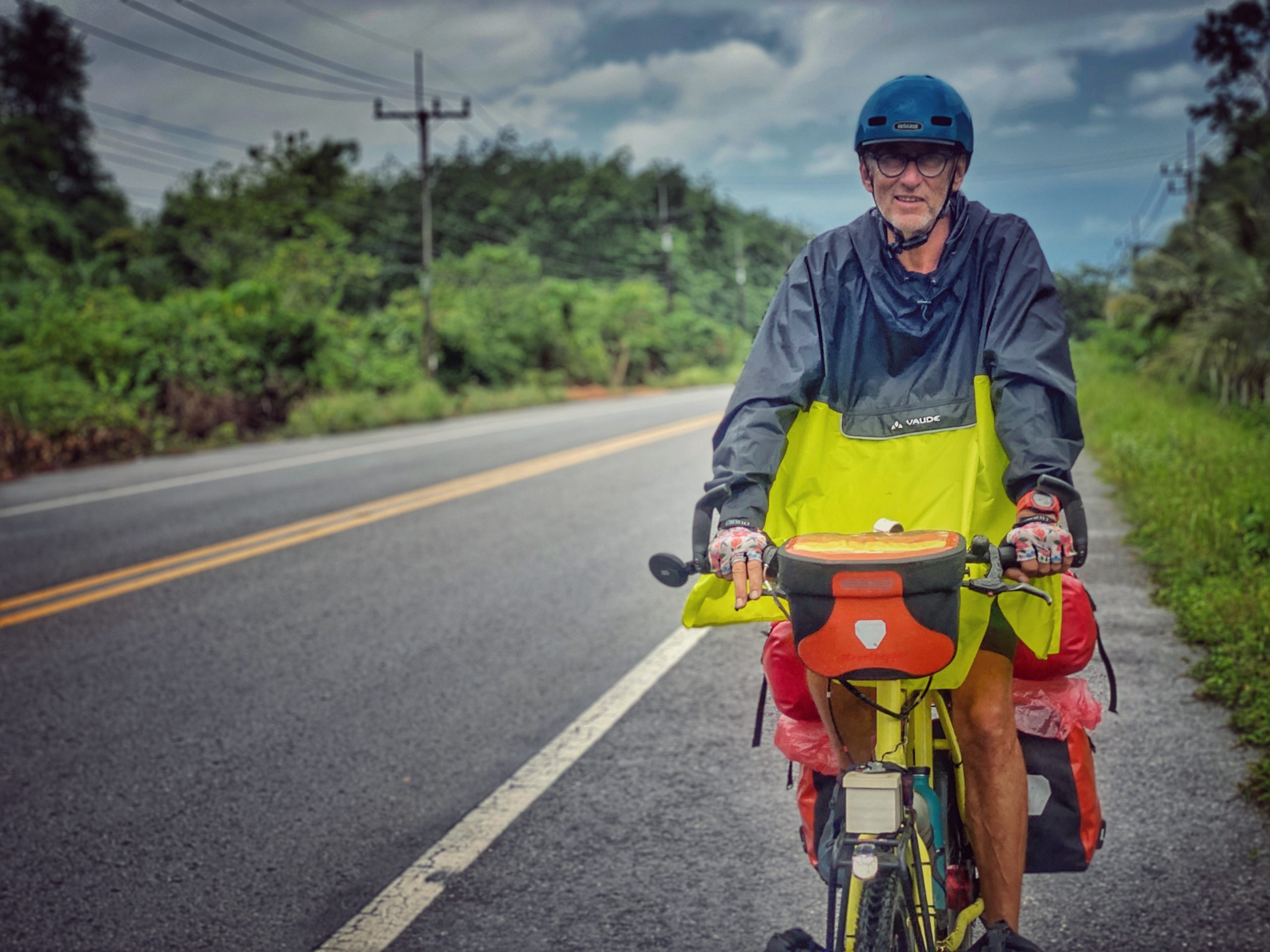
Raindrops keep falling on my head
Too many raindrops
It is July and we are on our way from Bangkok along the east coast of Thailand to Malaysia. It is rainy season in Southeast Asia and time to think about: how do I get the least wet? Or better, how do I dry again?
Thailand’s climate is influenced by two monsoons (the southwest and the northeast monsoon). In most parts of Thailand, the rainy season lasts from May to October, with September and October seeing the most rainfall. The east coast of the south, where we are currently traveling, is actually different! There, heavy rainfall occurs from October to December. But what does “actually” mean?! We are on the road here in July and yet we experience heavy rains that last for days.
They say, “Actually, it rarely rains all day. The days are warm and sunny most of the time, then when it rains, there are short and violent storms.” Uh-huh.
They say, “Rainstorms usually last about one to two hours at a predictable time (usually in the afternoon or evening).” Uh-huh.
There is now word for how strong we smell
After all, the rain itself isn’t the problem; rather, it’s the constant humidity that eventually turns us into a walking strain of bacteria ourselves. No, none of your pets can ever smell like that after a rain.
The main reason we stink like this is bacteria. In the warm and humid environment of our wet clothes, they really feel at home and multiply rapidly. And then there is also our sweat. Yes, exactly, if it rains and is warm at the same time it does not matter with the rain. Exactly not. We sweat, the sweat runs like water from the forehead, even when it rains. The typical sour smell of sweat develops when bacteria break down sweat into its individual components. Butyric acid is formed. And so it happens that we often can no longer smell ourselves. But we have to. This smell is brutal and remains in our nostrils for a while, even after a long shower. There is not much we can do about it. We will have to deal with it for a few more weeks and practice composure once again.

It’s all just chemistry in our heads
And again we ask ourselves the question: why do we do this to ourselves? And the answer is: it’s all just chemistry in our heads! We are doing well at the moment. Very well. We are healthy. Our equipment is twitching a bit, but we’re getting all the difficulties solved. A few flats, worn sprockets, a creak, moisture in the bags, broken rack bolts, and of course the smell.
But the routes here in Thailand are fantastic and I love gliding along small roads forever. Yes, you read correctly. No more “potholes”, we glide. Rather, green landscapes, the azure sea, the white beaches and forests of coconut palms make us smile as we progress mile after mile.
And then suddenly there is another day when clouds appear, not only in the sky but also in my brain. I am literally looking for reasons to be in a bad mood. And when I almost crashed into Klaus, I want to blame him. Why does he brake for every snake?! By the way, Klaus almost always drives in front on this trip. He sets the pace. Not because he is slower, but because he simply has better energy management. I usually always jet off and then soon wonder why I’m knackered early on.
But back to my chemistry in the head
I really don’t know of a better therapy than cycling therapy.
There I sit for hours on the bike, moving my legs up and down, Klaus always in view and watching these landscapes pass me by. What is this stupid chemistry in my head that wants to prevent me from just enjoying this? And by asking myself this question it loses its power. I can even smile directly about it, accept it and still enjoy these landscapes, these beautiful passing “paintings”. And at some point I notice that the chemistry of this morning has disappeared, one that evokes positive feelings has taken its place. It is not just a “why are we doing this to ourselves”, but rather a “why are we allowed to experience this”.
Feelings are not fixed emotional reflexes
My brain recreates them in every moment and I can interpret them. The brain is constantly trying to guess what the physical sensations actually mean. It links them to the situation based on its experiences. And of course these are also shaped by society.
My brain interprets
And so it can happen that my brain interprets something incorrectly. Maybe some car driver simply didn’t notice me that morning, even though I really stand out enough on my colorful bicycle, with my helmet and high-visibility vest. Or did someone simply not smile at me, although I smiled at him or her? I don’t know anymore and it doesn’t matter. Because if I have understood one thing on this trip, it is that we are socialized so differently on this earth that just all the different gestures or the same words do not mean the same thing. Hospitality is very often religious, a smile may be just an embarrassment gesture or we are not asked “how was your day”, but “have you eaten”.
And what surprised us at first, then annoyed us a bit and we had the impression that our counterpart was not really interested in us at all, it was exactly the opposite: “have you eaten anything yet?” is actually exactly this question about whether we have taken good care of ourselves, whether we are doing well. Initially, we were afraid that we would now be invited to eat all the time, but that wasn’t the point at all.
So when we touch other cultures whose emotional concepts I don’t understand, it’s stressful, and even though I don’t get sick right away, sometimes the chemistry can get messed up. Settling into a culture means learning to feel the emotions of that culture and we don’t have enough time for that, but we do have a little. “The bicycle is fast enough to go through the forest, but slow enough to see the trees”. Well, sometimes there is a branch in the way.
Raindrops fall because…
Back to my initial question why raindrops fall from the sky. I don’t really care, but how they fall is so different. That fascinates me.
Sometimes they are very soft, like from a watering can, and other times they almost hit you.
Raindrops fall about ten times slower than people in free fall. A typical drop with a diameter of 1 to 2 millimeters has a speed of, roughly, 20 kilometers per hour. But this depends mainly on the size. In drizzle or sprinkle, the drops are small and slow, perhaps falling at only 5 kilometers per hour. In a thunderstorm or downpour, they are large and somewhat faster, and can reach 30 to 40 kilometers per hour. It also depends on the wind conditions. Depending on how the wind blows, it can slow down or speed up the raindrops.
I wonder how you will look up to the raindrops the next time you are faced a rainy day?!
Anyway, Raindrops Keep Falling on my Head is much better then coconuts keep falling on my head 🙂






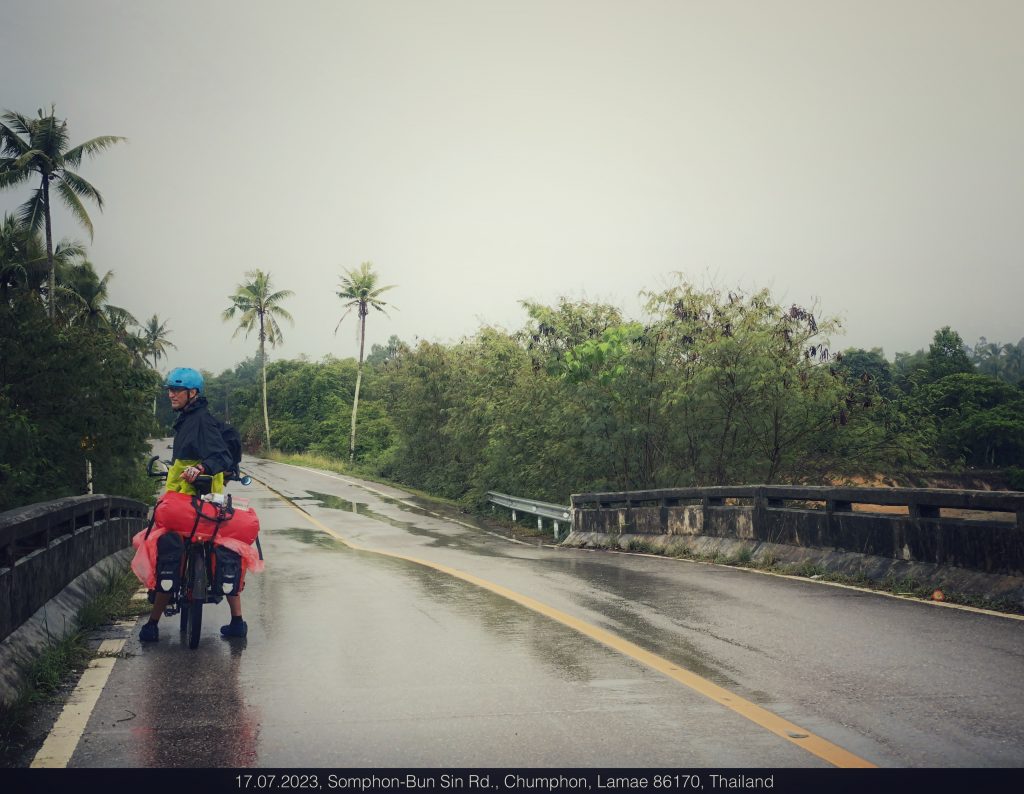




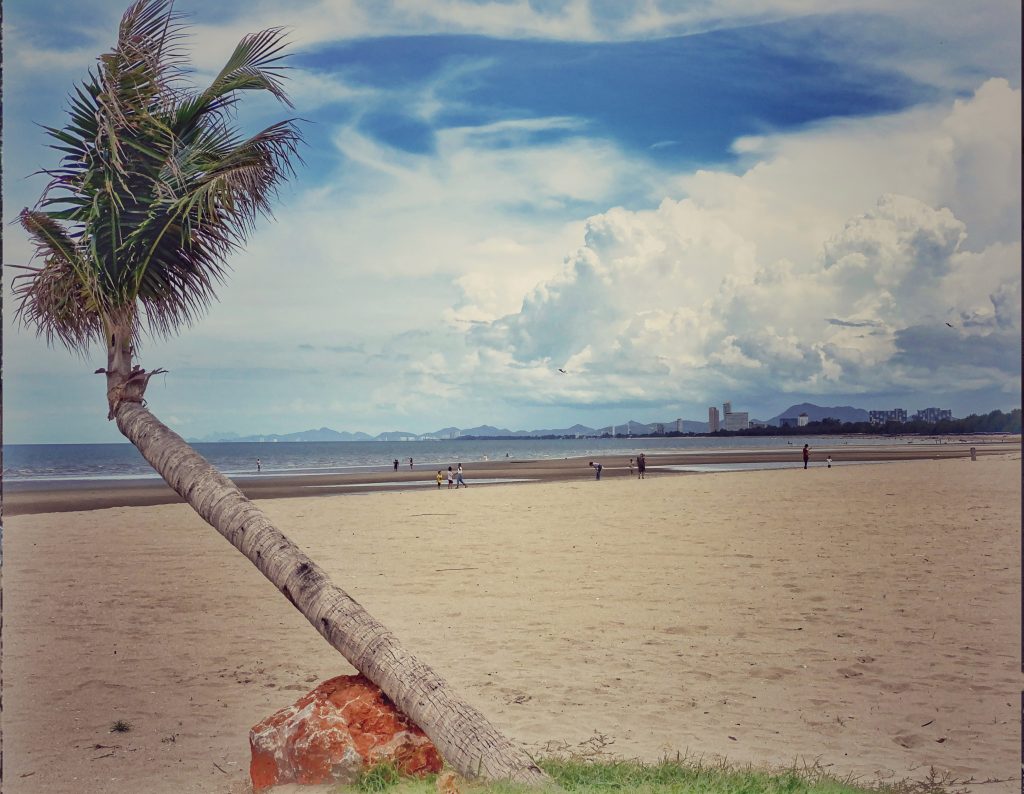
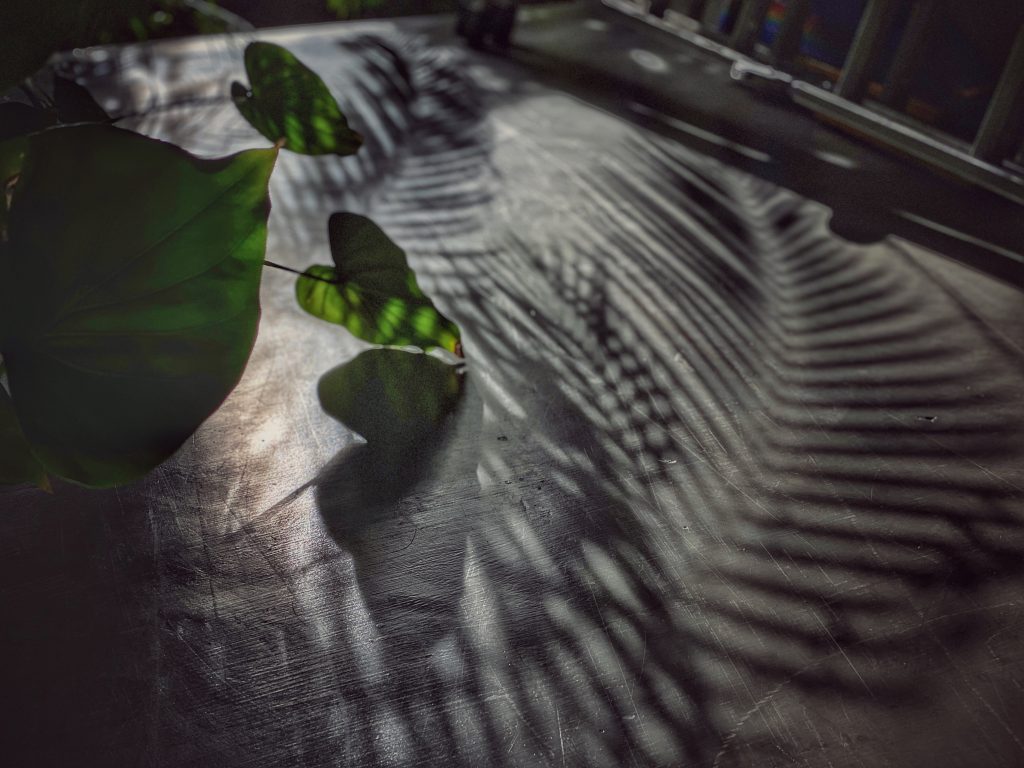
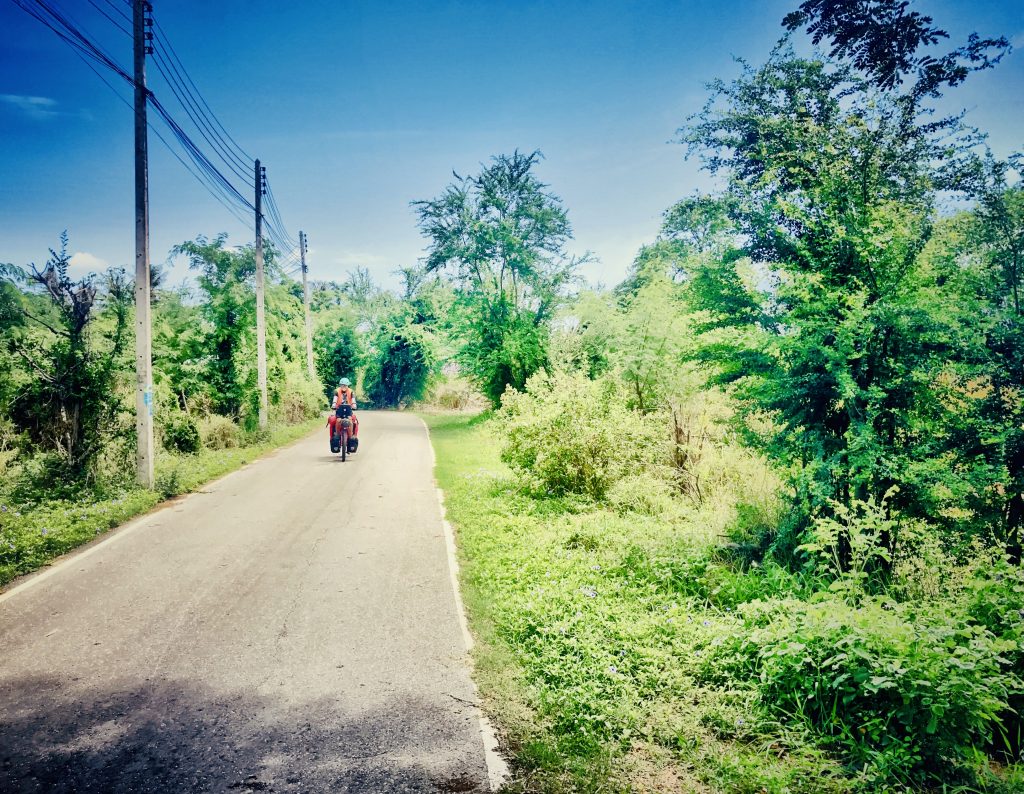
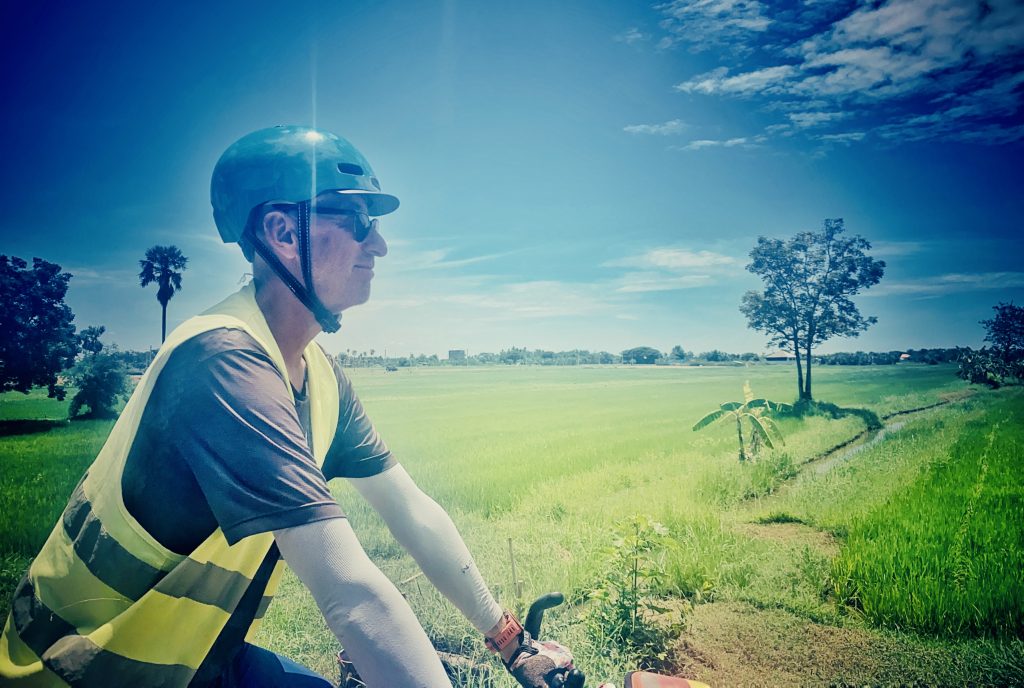
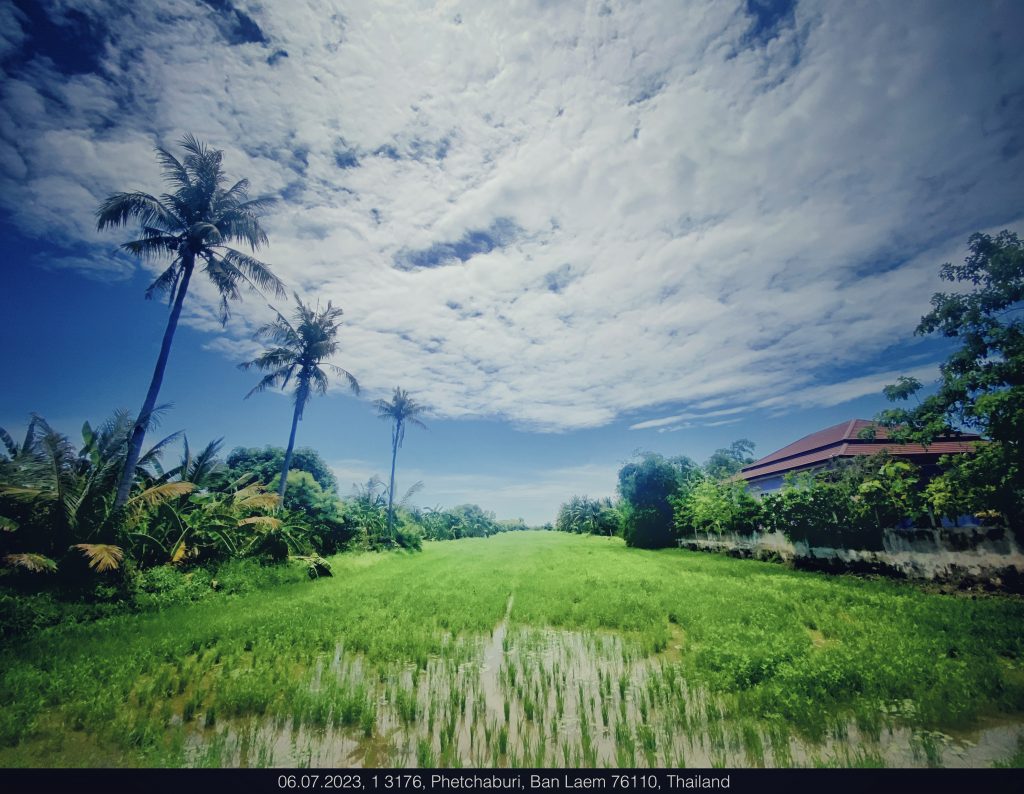
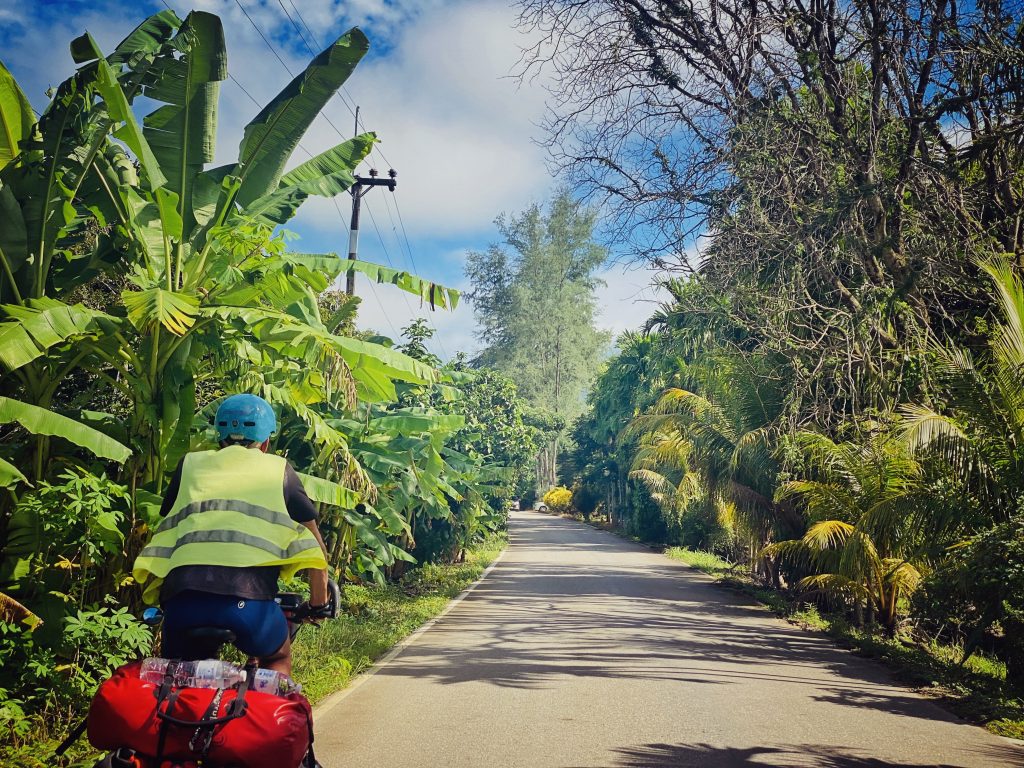
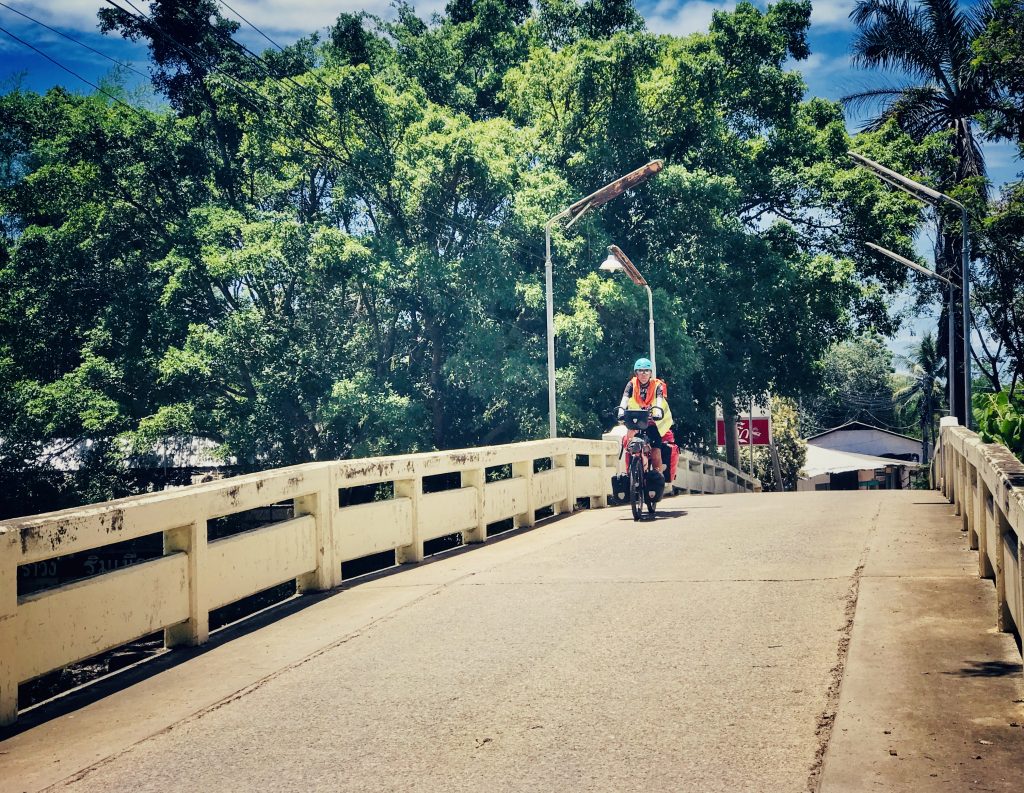
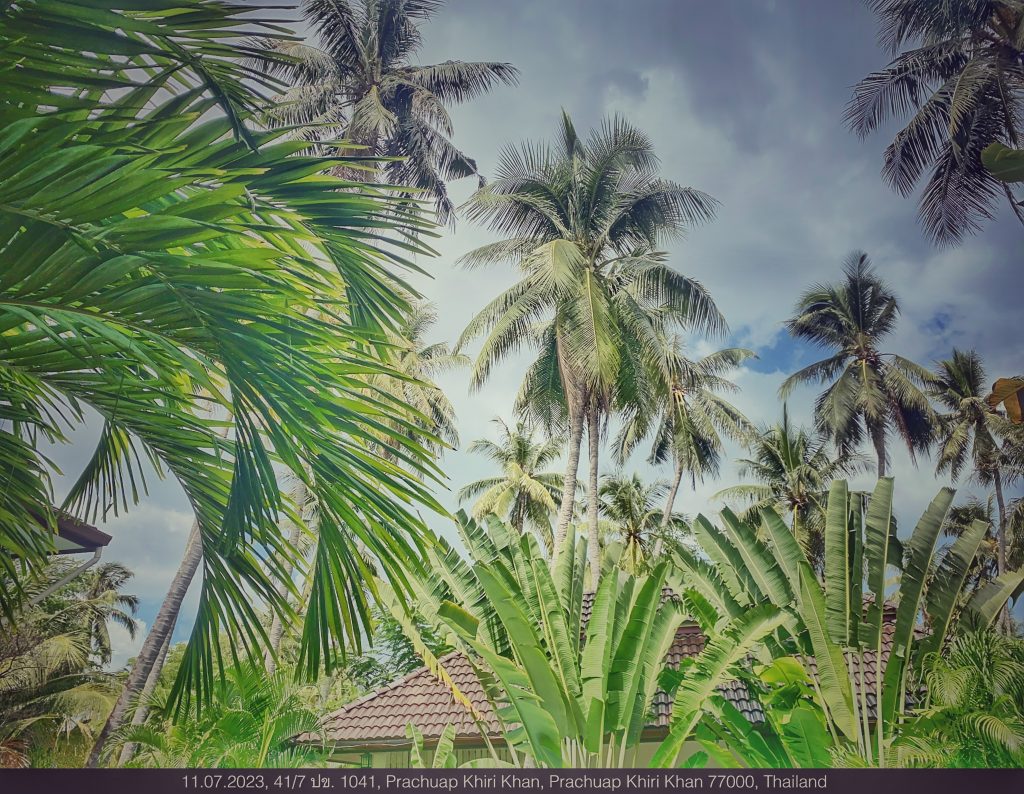
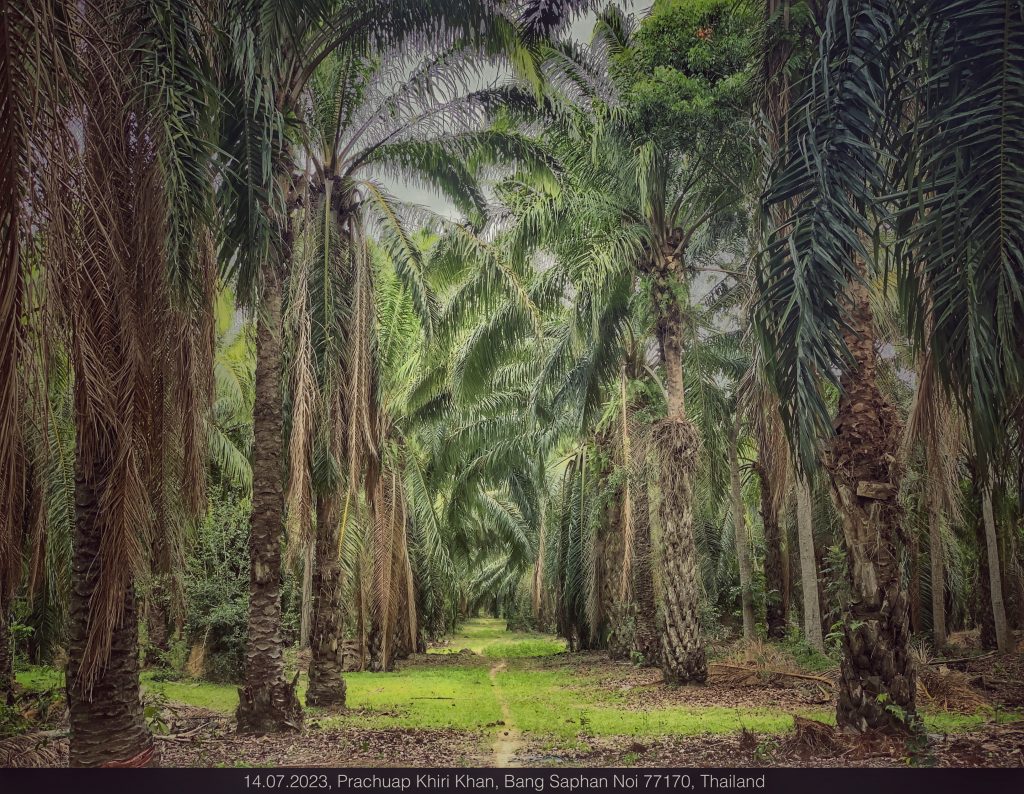
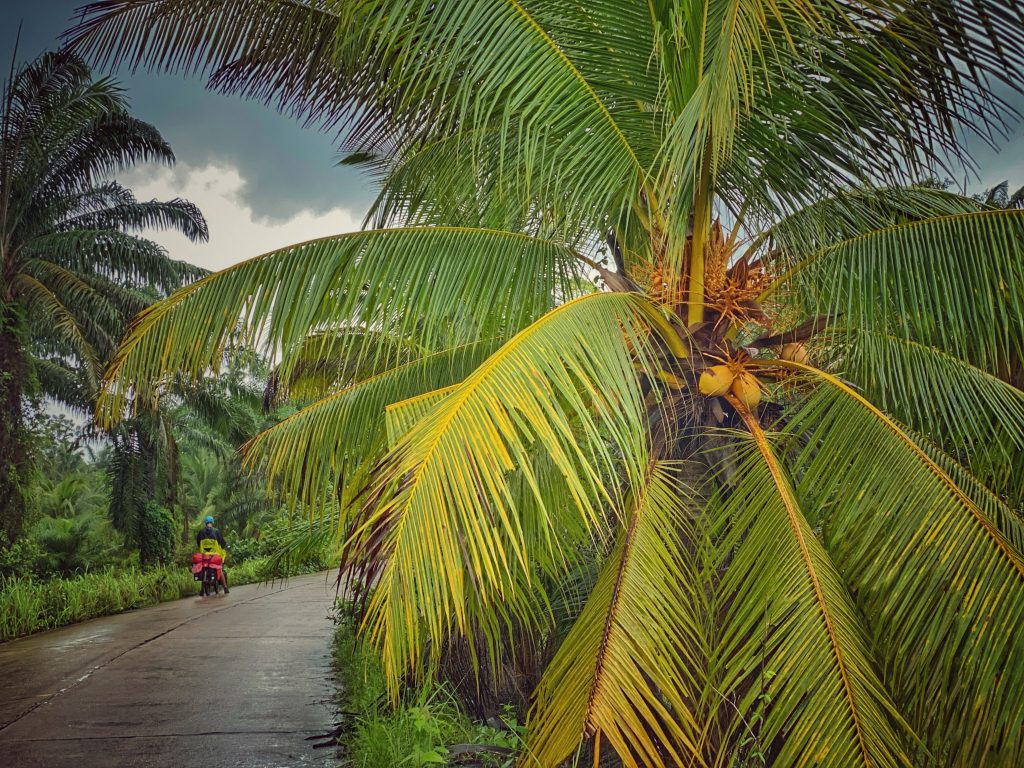
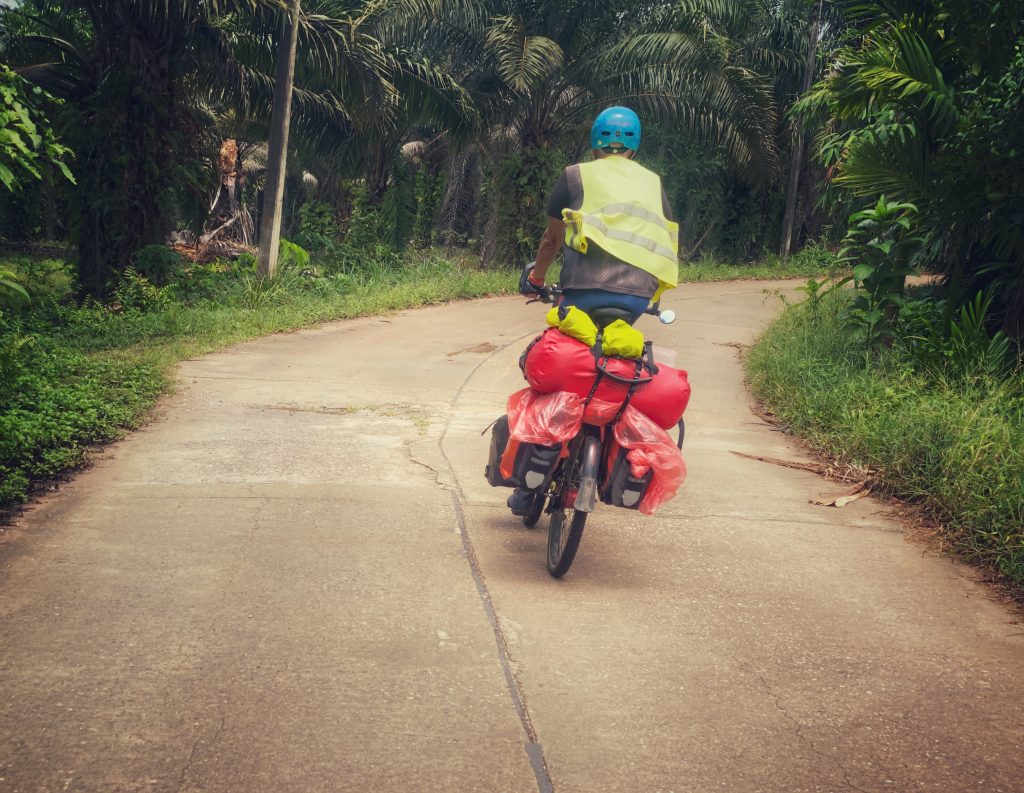
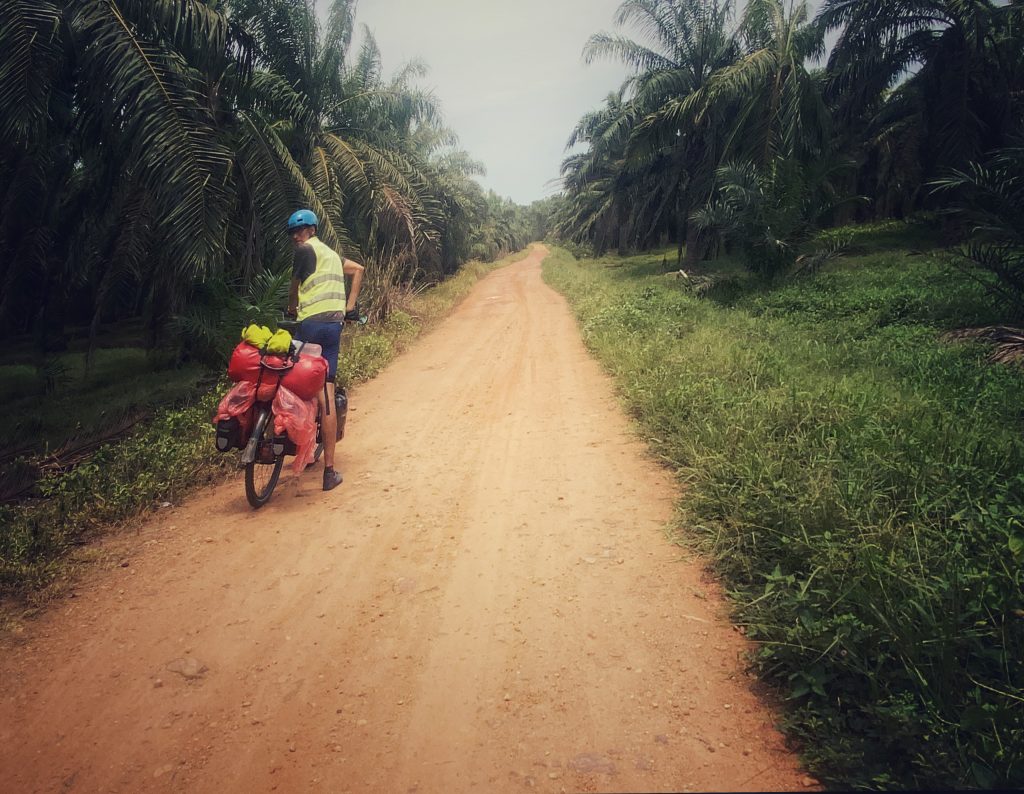
1 thought on “Raindrops”
Comments are closed.